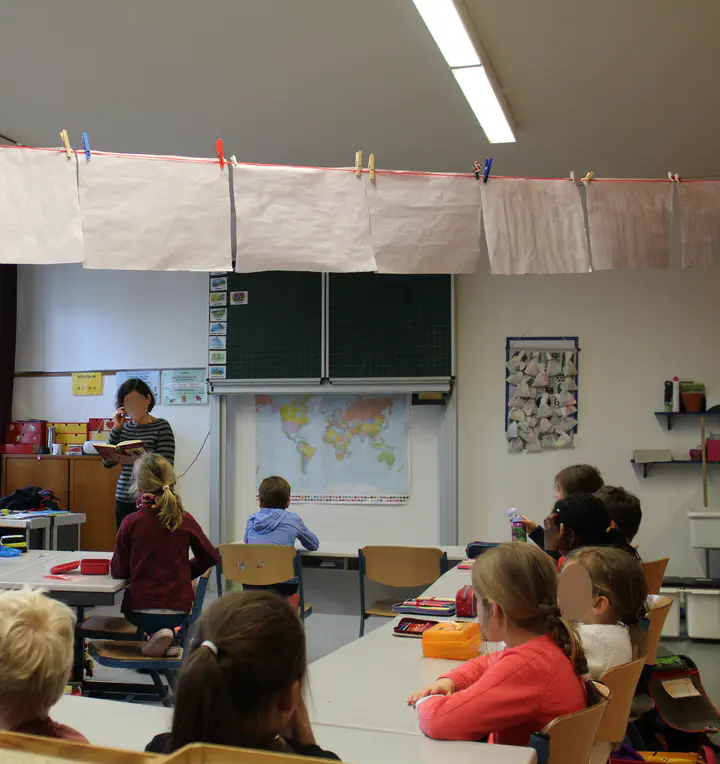The influence of stimuli length in an experiment on auditory selective attention for children

Abstract
Primary and preschool life mostly consists of complex acoustic scene, which are comparable to the cocktail-party-situation. In these situations it is important to identify the target sound and to ignore distracting sounds coming from different directions. Auditory selective attention enables this ability and is therefore an important tool for the communication and development of a child. In a previous study, an experiment on auditory selective attention was developed for adults in dichotic listening environment and then extended to a binaural listening setup including room acoustic aspects to provide a realistic reproduction of the complex acoustic scenes. In this work, the paradigm was adapted for children by adding child-oriented elements and a feedback system. Further, the previous digit-word categorization task was simplified for children by substituting it with animal names. To examine the capability of the chosen stimuli an investigation with short and extended stimuli length under anechoic and reverberant situation was conducted with 24 adults.